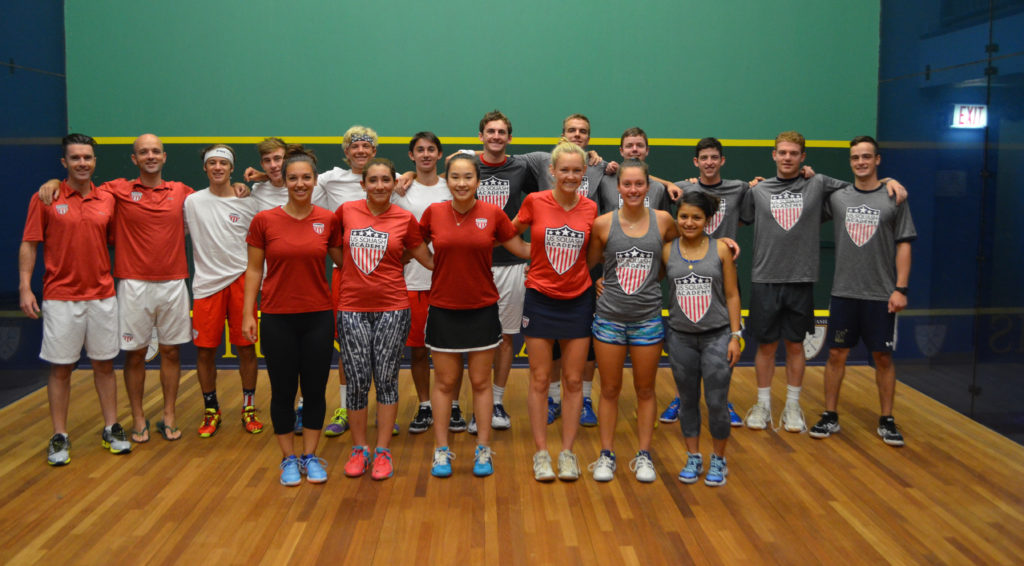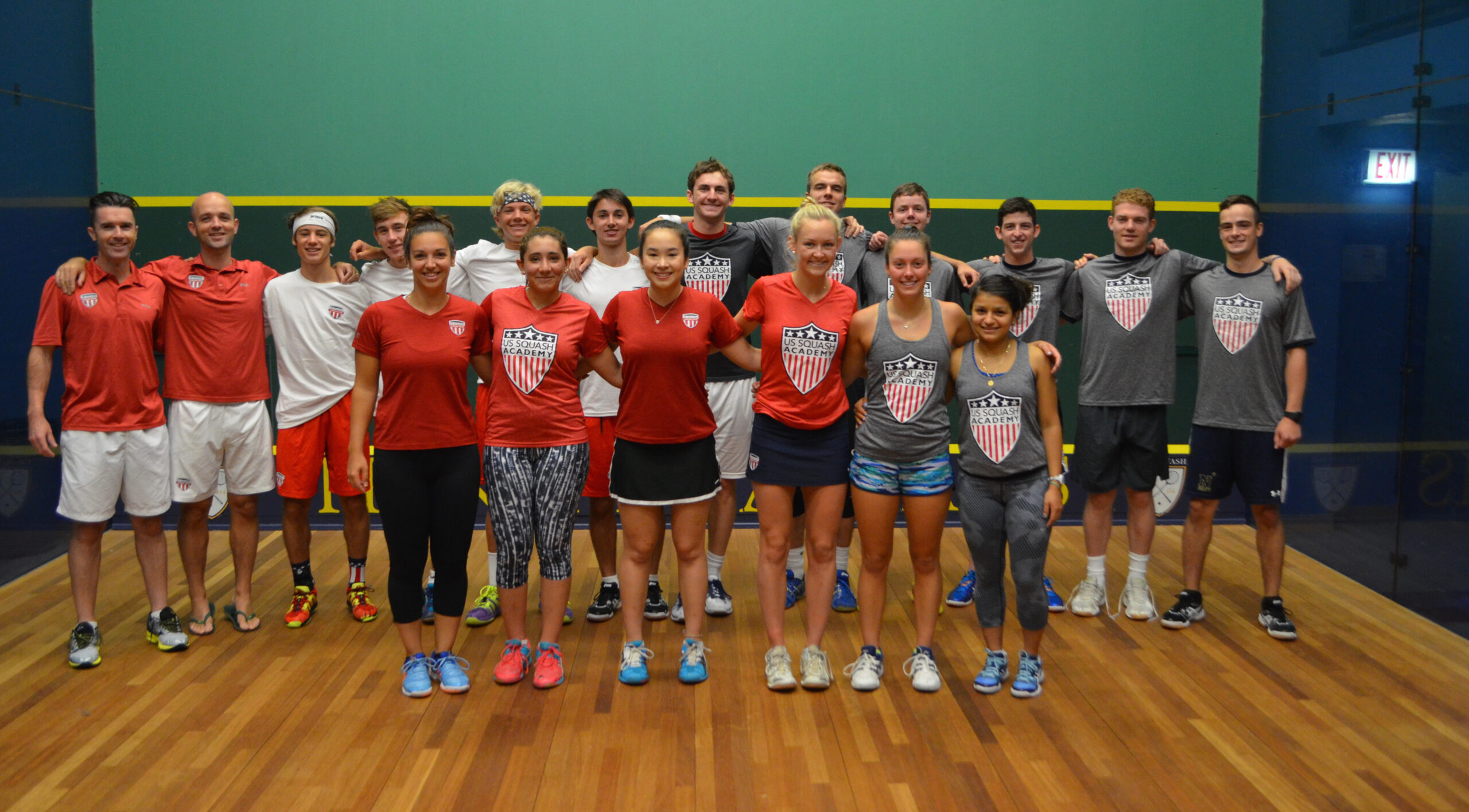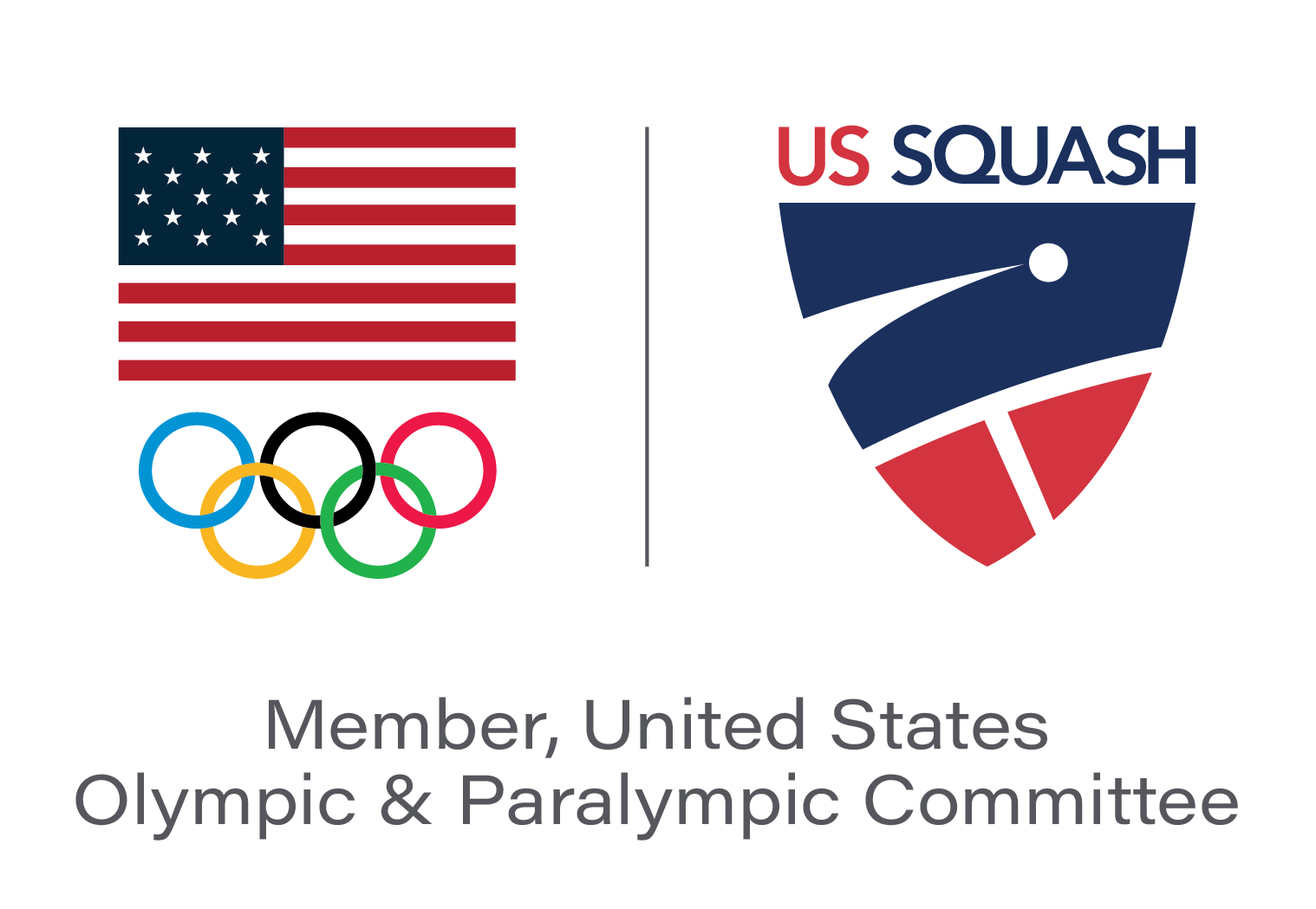
US Squash Academy Director Gilly Lane has praised the inaugural edition of the ground-breaking Team USA initiative, describing it as an “unbelievable success.”
The Academy, which took place July 10-22 at Trinity College, is the first program of its kind in the United States, employing a multi-layered approach that combines several major components of US Squash’s rapidly evolving elite development programs. These components include prospective Elite Athlete Program players, college squash players who may pursue a professional squash career, top junior prospects across U11-U17 age divisions, and the Team USA World Junior Championships squad.
The Academy incorporated two separate one-week squads for junior Team USA players, ages Under 11, Under 13, Under 15, Under 17 and the World Championships team members. The Junior Team USA squad prepared for the World Junior Championships in their third and final team session before traveling to Poland. The younger age divisions prepared for the developmental Pan American Junior Championships and the Battle of the Border programs taking place in August 2016.
The Academy also provided an environment for U.S. collegiate athletes to train as if professionals, while receiving coaching education instruction to prepare them for a potential career in squash after college. Through exposure to the U.S. National Coaching staff, the athletes are more prepared should they choose to successfully pursue the EAP upon graduation.
“Having been a part of the national team initiatives that we’ve had in the past, this was the best two weeks I’ve been a part of as a coach, ” Lane said. “The kids all really took to the coaching. They listened. Their participation was excellent. They all bonded together. One of the best parts of the two weeks was seeing kids who normally competed against each other, and trained to beat one another, now training together and pushing each other towards the common goal of improving their games. They really understood what it means to represent your country at this level. Everyone showed true professionalism during the two weeks. I was pleased with how much they absorbed and wanted to learn. They took on everything in such a positive was, it was a coach’s dream.”
While initiatives such as the Regional Squads, Regional Team Championships, and Elite Athlete Program have been in place for a few years, the Academy bridged the gap between juniors, prospective EAP players and college players.
“We’ve had squads in the past for national teams where the base of the training was just for one tournament, ” Lane continued. “However this new Academy environment allowed the coaching team to show the players what real training is like, and if they’re pursuing squash professionally, how they need to train on a daily basis and informing them on the professional lifestyle, which many of our previous generations—including myself—weren’t privy to when choosing to turn professional. So it was crucial for them to see what the professional lifestyle is like, what a daily routine is, what a two-week routine is, and showing them what it’s all about.”
Lane, also the Associate Head Coach at the University of Pennsylvania, is one of US Squash’s most successful athletes, having attended UPenn as a student-athlete, represented Team USA at multiple major events, trained in both the U.S. and the Netherlands as a professional player and achieved a world ranking of No. 49.
“It was amazing being at Trinity College, ” Lane said of the hosts. “Thanks to Paul Assaiante for opening up his home to us. They were amazing hosts. Rich Wade deserves so much of the credit because he put in so much time and effort into realizing this vision.”
“We’re looking forward to building on these two weeks and making this bigger and better in years to come, ” Lane said. “The most exciting part of the two weeks was the overwhelming positive responses from the players. The training was incredible to the point where we want to continue beyond these two weeks. And it’s not just about those two weeks; it’s about working towards the coming months and years for these players.”






